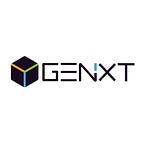Direct-to-Consumer Genetic Testing Market: trends, problems, open-source solutions
Trends: ancestry prediction and DNA relatives matching are the best-selling direct-to-consumer genetic services
The Direct-To-Consumer (DTC) genetic testing market has been gathering momentum since the completion of the Human Genome Project in 2003. According to public sources, more than 37 million people had taken DTC genetic tests by the end of 2021.
As knowledge of human genetics advances, DTC Genetic Testing Companies (GTCs) have been expanding their market offerings in multiple applications, including health, personal traits, pharmacogenomics, nutrition, and fitness.
However, consumer behavior trends continue to show that ancestry prediction and DNA relatives matching services remain the key market drivers. As stated by Margo Georgiadi, the President and CEO of AncestryDNA, these services accounted for more than 50% of the 30 million people who took genetic tests in 2020.
Such demand is considered a social phenomenon that embraces people’s eager desire to explore their origins and connections worldwide. It is, therefore, no surprise that these services are best-selling among all major personal genomics companies.
However, 37 million is approximately what we get if we add up the publicly announced databases of the three largest companies, such as 23andMe, MyHeritage, and AncestryDNA. The actual number of people who bought DTC DNA tests must be larger, considering that there are at least 250 GTCs worldwide.
Although the scope of the market may not come as a surprise, the question is — how much larger is the actual number? To what extent do less popular genetic companies differ from the top three and what challenges do they encounter?
Problems: most GTCs are unable to offer the best-selling DNA services due to the lack of complex algorithms and large-scale genomic databases
The reality is that while the top companies successfully accumulate millions of customers, the databases of other companies do not usually surpass hundreds of thousands. Large-scale genomics databases allow GTCs to take part in clinical research and drug development, resulting in rapid but disproportionate market growth.
Apart from the advantage of established market presence, the size difference among GTCs arises as mainly larger companies are able to offer a lucrative mix of ancestry and DNA relatives matching products. Our market research of 165 genetic companies showed that only about 15% of the companies provide both Ancestry and DNA relatives matching products.
To introduce genetic ancestry testing, companies require complex algorithms that precisely estimate admixture by multiple geographic regions. Since outputs can often be validated by customers who have a rough understanding of their family roots, ancestry prediction plays an important role in establishing a company’s reputation.
Launching DNA relatives matching on locally-controlled datasets involves both advanced algorithms and a large number of customers in order to generate meaningful numbers of potential distant relatives.
Assembling a pipeline that stably operates on real-world genotypic data is a thorough R&D process that has always remained in-house. Despite the fact that the so-called ‘Do-It-Yourself’ approach uses free and open-source tools as building blocks, there is no common framework explaining the development behind it. Hence, searching, assessing, compiling, training, and scaling various tools to integrate the state-of-the-art pipeline requires substantial financial resources, time, and bioinformatics expertise.
The pioneers of DTC genetic testing have been competing for the best pipelines for over a decade, constantly advancing their patented solutions. This draws us to the conclusion that the R&D maturity of established companies further increases entry barriers to the best-selling market niche.
GENXT open-source bioinformatics solution: Genomic RelAtedness detection PipelinE (GRAPE).
Driven by open and user-led innovation, GENXT has developed the first open-source end-to-end solution for relatedness detection that is reliable and accurate for close and distant degrees. The Genomic RelAtedness detection PipelinE (GRAPE) includes all necessary steps to process real-world genotypic data and is ready for production use.
In Part 2, we provide a detailed overview of the tools and methods used in GRAPE.
